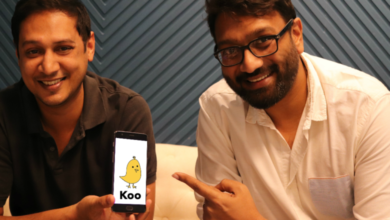Fashion must graduate above the status of a tool for augmenting shareholder wealth: Ramanuj Mitra

With an experience in mineral engineering and sustainability, Ramanuj Mitra is currently working as a senior program officer at the Centre for responsible business (CRB) a think tank, based in Delhi. Focusing on circular economy in apparel and textiles and electronics. Speaking to incubees at the Recommerce Sustainable Clothing & textile Recycling Conference in Coimbatore he gave his insights on sustainability in the textile sector.
Incubees: Fashion is the second largest polluting industry in the world, it’s time we take steps to drive change, your comments? What do you think about the durability and the quality of sustainable clothing?
Ramanuj Mitra: I totally agree that changes are needed. Urgent changes are required not only at the manufacturing level but also at the level of international economic understanding. Prevalent economic theories and their implementation perpetuate the cycle of sourcing cheap raw materials and final goods from producer countries and finally using and throwing them away. The producer countries are often developing nations with inadequate compliance and environmental and social regulations.
International brands and consumers must take the lead. Fashion must graduate above the status of a tool for augmenting shareholder wealth. Prices of clothes must reflect the true environmental and social costs.
Traditionally, clothes were manufactured to last. But with the advent of rapid cycles of fashion, take-make-and-dispose models of business have become prevalent, creating a lot of pre-consumer and post-consumer waste. Sustainable clothing is (by definition) more durable and of better quality.
Incubees: Give us a detailed understanding of the kind of fabric used in sustainable clothes.
Ramanuj Mitra: CRB has developed a framework on “circular apparel”, i.e. circular economy principles applied to the textile industry. It defines sustainable raw materials/fabric as those created with minimal environmental and social footprint. A sustainable fabric will be made of a raw material that uses less water, energy, fertilizers, etc. to grow.
Another dimension of sustainable fabric is the ease of recycling. If the fabric is blended, it can be difficult to separate it into its constituent materials and then recycle them. E.g., cotton and lycra are used in stretchable jeans. But recycling technology has made advances in the separation of fabric blends.
Incubees: Are these sustainable textiles budget-friendly? Considering eco-friendly clothing is not cheap and cannot be afforded by everyone in the market?
Ramanuj Mitra: Prices are determined by various factors. We must find ways to disincentivize unsustainable clothing through environmental taxes, etc. and use the revenue to support a sustainable transition. Also, sustainable clothing was never costly, at least till the point when “planned obsolescence” became mainstream. Environment-friendly and healthy choices have been artificially made costlier, which can be reversed through adequate public support and political will.
Incubees: The textile industry must manufacture a large product of clothes each every, what happens to the clothes that remain unused?
Ramanuj Mitra: Usually remarketed at a suitable time, some part of the stock can be recycled/repurposed/ landfilled, or even burnt.
Incubeees: Brands like Nike, H&M, Victoria’s Secret burn about the billions worth of clothing each year instead of recycling them or reusing them. What do you think the impact it must be having on the environment?
Ramanuj Mitra: The impact is huge. They are burning not only the final products but also billions of litres of water, chemicals, energy, etc. as an embedded value in the clothes. The inputs for manufacturing are all lost in this process, apart from the environmental impact of production and burning (carbon dioxide, toxic fumes, etc.)
To read all interviews, visit: https://incubees.com/recommerce-building-an-entire-ecosystem-to-manage-recyclables-generated-by-industries/
https://incubees.com/recommerce-part-3-embracing-a-new-way-through-upcycled-and-recycled-fashion/





